MSC Marc: Simulate products more accurately with the industry’s leading nonlinear FEA solver technology
Marc is a powerful, general-purpose, nonlinear finite element analysis solution to accurately simulate the product behavior under static, dynamic and multi-physics loading scenarios. Marc's versatility in modeling nonlinear material behaviors and transient environmental conditions makes it ideal to solve your complex design problems.
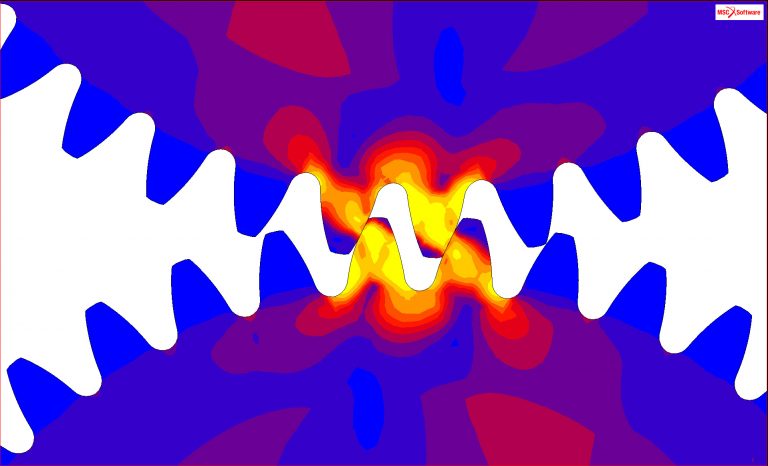
Marc is ideal for product manufacturers looking for a robust nonlinear solution. It has capabilities to elegantly simulate all kinds of nonlinearities, namely geometric, material and boundary condition nonlinearity, including contact. It is also the only commercial solution that has robust manufacturing simulation and product testing simulation capabilities, with the ability to predict damage, failure and crack propagation. Combined with its multi-physics capabilities that help you couple thermal, electrical, magnetic and structural analyses, Marc is the complete solution that can address all your nonlinear simulation requirements.
Nonlinear and Multiphysics Solution
Marc, optimized for nonlinear analysis, delivers comprehensive, robust solution schemes to solve problems spanning the entire product lifespan, including manufacturing process simulation, design performance analysis, service load performance and failure analysis. These include:
- Nonlinear analysis that incorporates all forms of nonlinearities (Material, geometric, boundary condition including contact)
- Thermal analysis
- Coupled thermomechanical analysis
- Electromagnetics
- Piezoelectric analysis
- Electrical-Thermal-Mechanical
- Electrostatics and Magnetostatics coupled with structural response
- Manufacturing processes like sheet metal forming, hydroforming, extrusion, blow molding, welding, induction heating, quenching, curing, cutting etc.
- Piezoelectric analysis with higher order 3D elements
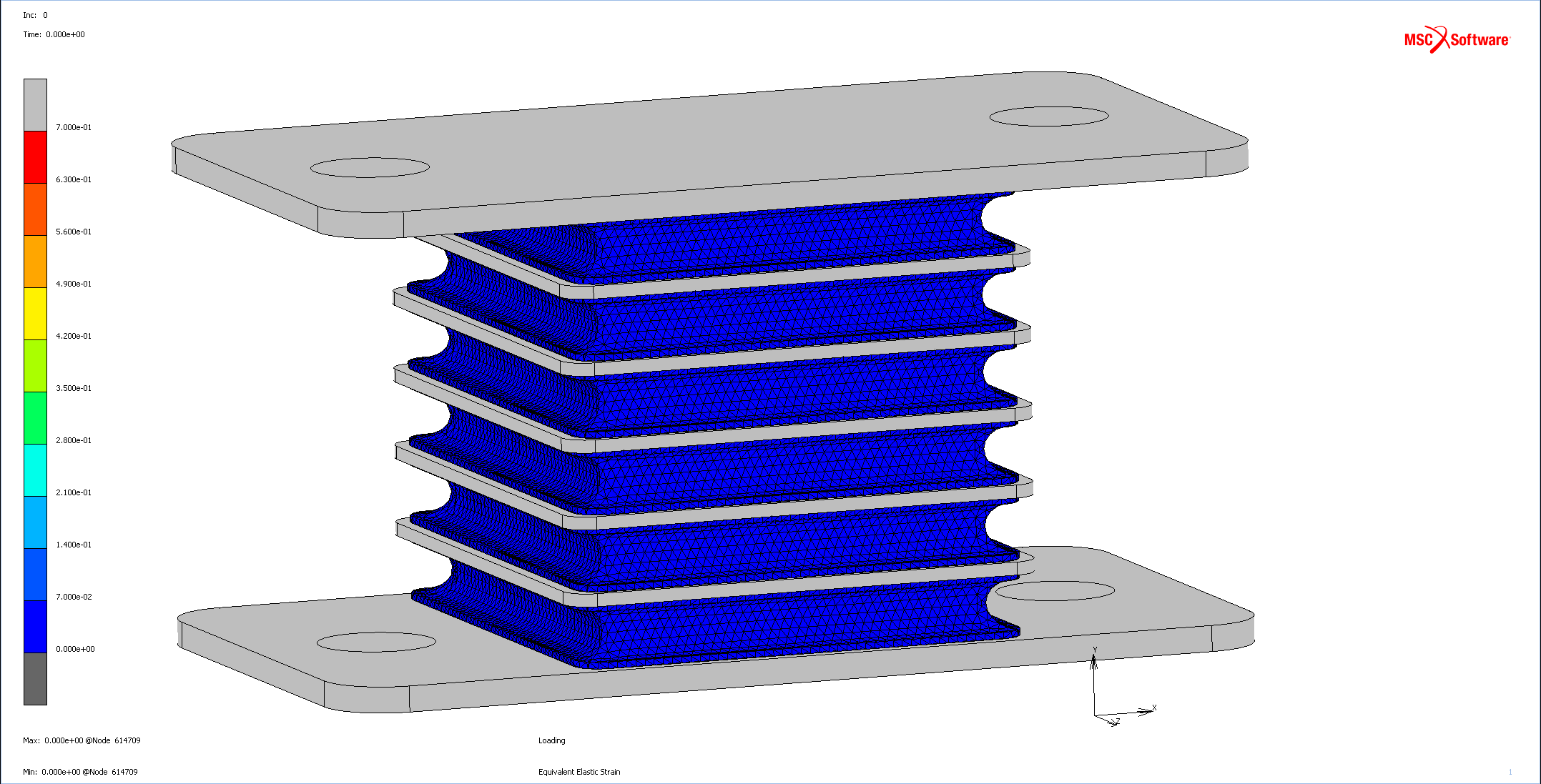
Contact Analysis
Investigate interaction between multiple components with Marc’s superior and intuitive contact modeling capability.
- Set up a contact model easily in 1-D, 2-D or 3-D, analyze and visualize the ever-changing component interaction.
- Gain modeling efficiency by avoiding the need for additional contact elements, contact pairs or slave-master definitions.
- Set up and investigate self-contact without additional modeling effort.
- Analyze effects of friction and related material changes with ease.
- Control contact behavior by the proximity of the geometric surfaces and thermal criteria
- Easily add, remove or modify Contact Table definitions using the Automatic Contact Detection method available in Marc.
- The search process starts based on a user defined or automatic contact tolerance
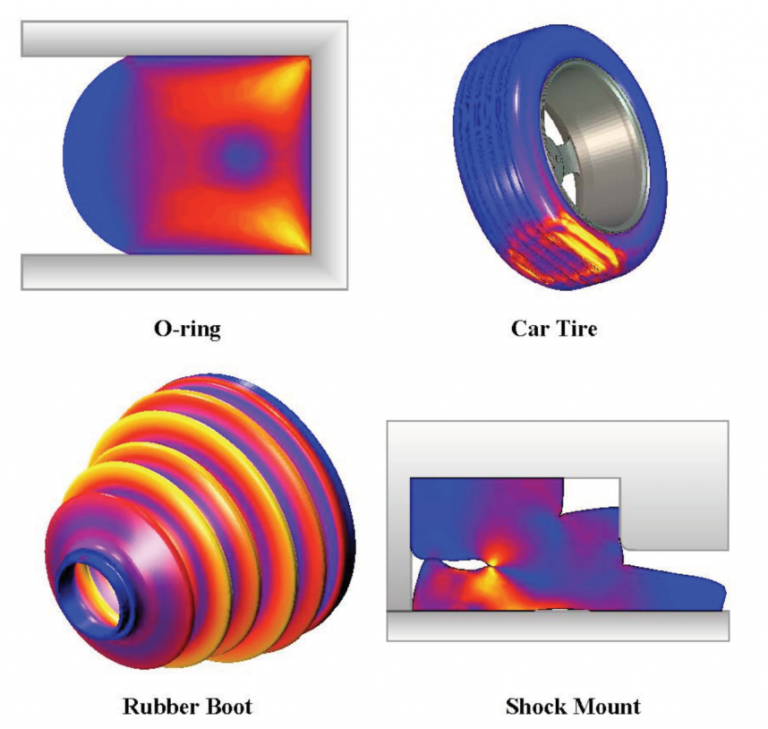
Nonlinear Materials
Choose from an extensive library of metallic and non-metallic material models, and a collection of over 200 elements for structural, thermal, multiphysics and fluid analyses to accurately model the materials used in your designs.
- Isotropic, orthotropic and anisotropic elasticity
- Isotropic and anisotropic plasticity
- Hyperelasticity (elastomeric materials)
- Time-dependent and time-independent behavior
- Powder metals, soils, concrete, shape memory alloys
- Solder, viscoplasticity, creep
- Composites
- Piezoelectricity
- User defined material models
- Extensive Material data fitting options for advanced material models such as rubbers, plastics thermoplastics and metals
- Material data can be stored into an encrypted material data file
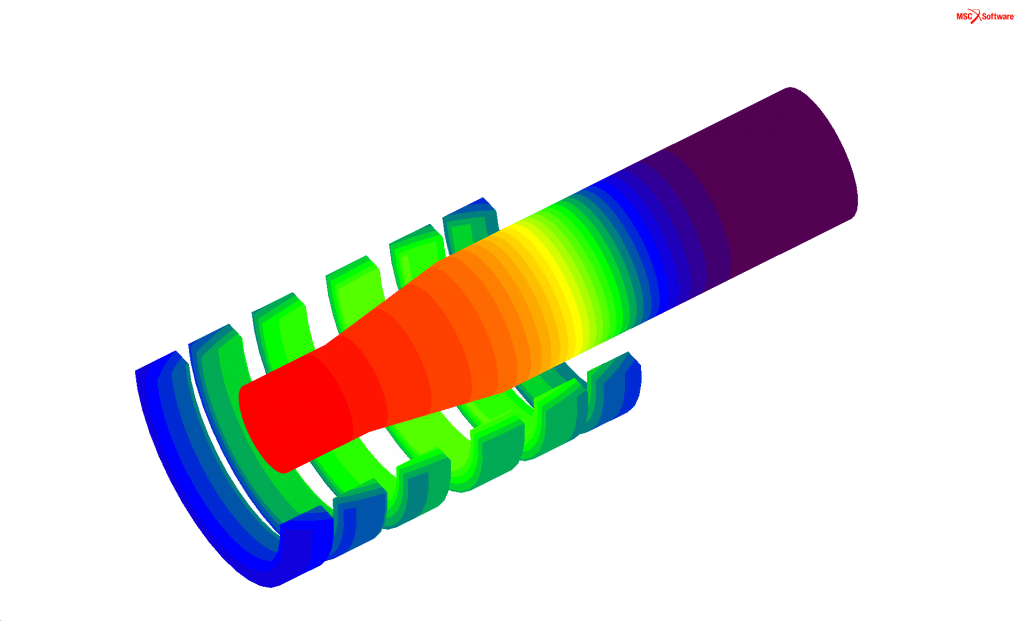
Failure and Damage
Select from a comprehensive set of failure models to study degradation and failure of metals, concrete, composites, and elastomers.
- Ductile damage
- Damage accumulation in elastomers
- Composite failure analysis
- Laminate bond failure
- Low tension cracking and crushing
- Fracture mechanics
- Crack propagation under monotonous, low cycle and high cycle loads
- User defined failure models
- Mesh independent damage prediction using Lemaitre model
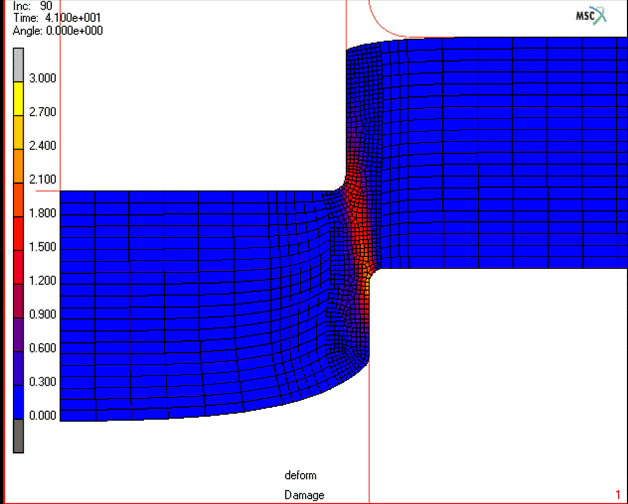
WE WORK WITH YOU
We pride ourselves on empowering each client to overcome the challenges of their most demanding projects.
Enteknograte offers a Virtual Engineering approach with FEA tools such as MSC Softwrae(Simufact, Digimat, Nastran, MSC APEX, Actran Acoustic solver), ABAQUS, Ansys, and LS-Dyna, encompassing the accurate prediction of in-service loads, the performance evaluation, and the integrity assessment including the influence of manufacturing the components.

FEA (Finite Element) Welding Simulation: RSW (Resistance Spot Welding), FSW (Friction Stir Welding), Pressure Welding, Arc, Electron and Laser Beam Welding
Finite Element Simulation of Heat Treatment
Finite Element Analysis of Durability and Fatigue Life
Metal Forming Simulation
Acoustics and Vibration Simulation
Vibration Fatigue Finite Element Simulation: Time & Frequency Domain
Electromagnetic Multiphysics FEA & CFD Based Simulation
Stress Relief Heat Treatment: Finite Element Simulation
Integrated Artificial Intelligence (AI) & Machine Learning - Deep Learning with CFD & FEA Simulation
Additive Manufacturing and 3D Printing
Heat Transfer and Thermal Analysis: Fluid-Structure Interaction with Coupled CFD and Finite Element Based Simulation
Seat Design: Finite Element and CFD Simulation for Static & Dynamic Comfort, Whiplash, Acoustic & Thermal Comfort, Crash Test
CFD and FEA in Civil Engineering: Seismic Design, Earthquake, Tunnel, Dam, Concrete Structures and Geotechnical Multiphysics Simulation
Marine and Shipbuilding Industry: Finite Element and CFD Based Simulation and Design
In Silico Medical & Biomedical Device Testing: Finite Element & CFD Simulation and Design, Considering FDA & ASME V&V 40
FEA and CFD Simulation for Aerospace Structures: Aerodynamics, Acoustics, Fatigue and Vibration, Thermal Analysis, Crash & Impact





